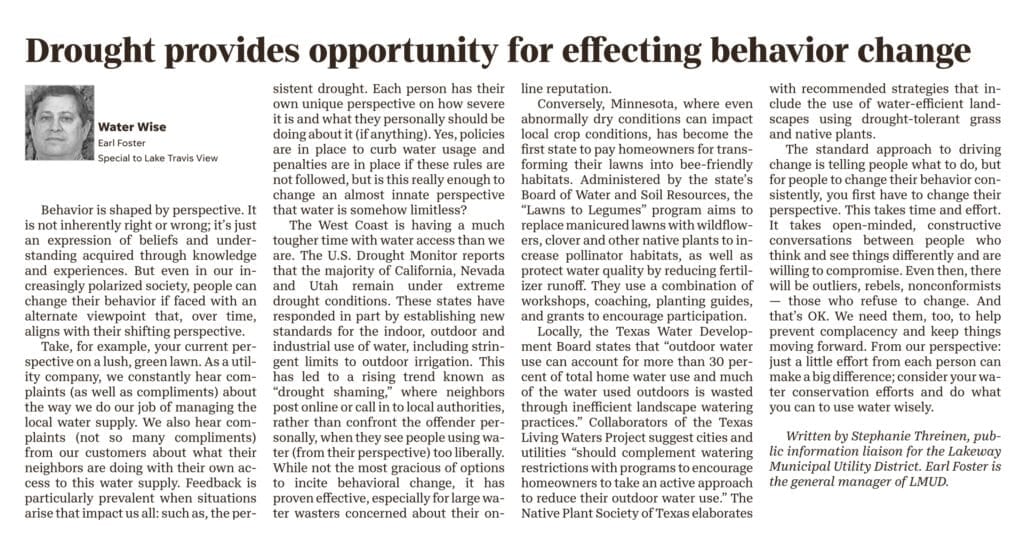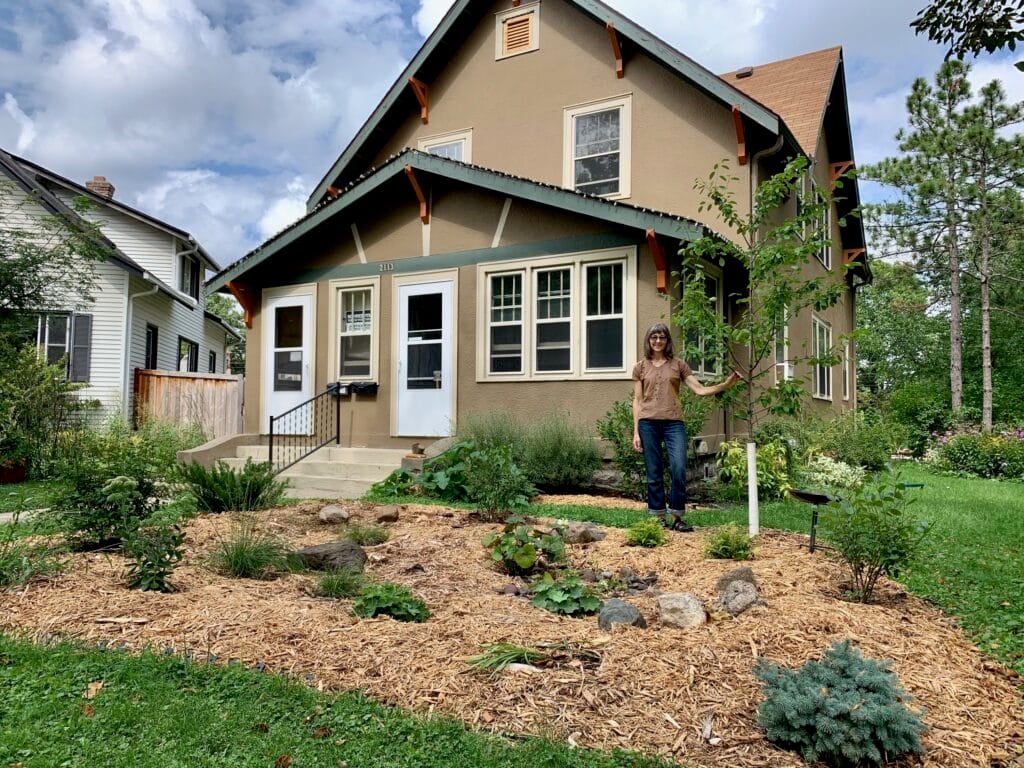Drought provides opportunity for effecting behavior change
 As published in the Lake Travis View, September 2022
As published in the Lake Travis View, September 2022
Behavior is shaped by perspective. It is not inherently right or wrong; it’s just an expression of beliefs and understanding acquired through knowledge and experiences. But even in our increasingly polarized society, people can change their behavior if faced with an alternate viewpoint that, over time, aligns with their shifting perspective.
Take, for example, your current perspective on a lush, green lawn. As a utility company, we constantly hear complaints (as well as compliments) about the way we do our job of managing the local water supply. We also hear complaints (not so many compliments) from our customers about what their neighbors are doing with their own access to this water supply. Feedback is particularly prevalent when situations arise that impact us all: such as, the persistent drought. Each person has their own unique perspective on how severe it is and what they personally should be doing about it (if anything). Yes, policies are in place to curb water usage and penalties are in place if these rules are not followed, but is this really enough to change an almost innate perspective that water is somehow limitless?
The West Coast is having a much tougher time with water access than we are. The U.S. Drought Monitor reports that the majority of California, Nevada and Utah remain under extreme drought conditions. These states have responded in part by establishing new standards for the indoor, outdoor and industrial use of water, including stringent limits to outdoor irrigation. This has led to a rising trend known as “drought shaming,” where neighbors post online or call in to local authorities, rather than confront the offender personally, when they see people using water (from their perspective) too liberally. While not the most gracious of options to incite behavioral change, it has proven effective, especially for large water wasters concerned about their online reputation.

Conversely, Minnesota, where even abnormally dry conditions can impact local crop conditions, has become the first state to pay homeowners for transforming their lawns into bee-friendly habitats. Administered by the state’s Board of Water and Soil Resources, the “Lawns to Legumes” program aims to replace manicured lawns with wildflowers, clover and other native plants to increase pollinator habitats, as well as protect water quality by reducing fertilizer runoff. They use a combination of workshops, coaching, planting guides, and grants to encourage participation.
Locally, the Texas Water Development Board states that “outdoor water use can account for more than 30 percent of total home water use and much of the water used outdoors is wasted through inefficient landscape watering practices.” Collaborators of the Texas Living Waters Project suggest cities and utilities “should complement watering restrictions with programs to encourage homeowners to take an active approach to reduce their outdoor water use.” The Native Plant Society of Texas elaborates with recommended strategies that include the use of water-efficient landscapes using drought-tolerant grass and native plants.
The standard approach to driving change is telling people what to do, but for people to change their behavior consistently, you first have to change their perspective. This takes time and effort. It takes open-minded, constructive conversations between people who think and see things differently and are willing to compromise. Even then, there will be outliers, rebels, nonconformists ― those who refuse to change. And that’s OK. We need them, too, to help prevent complacency and keep things moving forward. From our perspective: just a little effort from each person can make a big difference; consider your water conservation efforts and do what you can to use water wisely.
Written by Stephanie Threinen, public information liaison for the Lakeway Municipal Utility District. Earl Foster is the general manager of LMUD.

 You are now being redirected to the WaterSmart page.
You are now being redirected to the WaterSmart page.